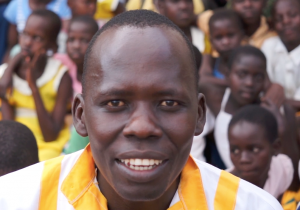Music is a way to remember, cope with issues of the past and deal with present-day realities. Music enables people to discuss issues that are rarely talked about. Music comforts people, documents, evokes memories and creates new connections. Moreover, it educates younger generations about their history and culture.
Many of the 111 recorded songs relate to the war between the Lord’s Resistance Army (LRA) and the Ugandan government, which took place from 1986 until 2006 in northern Uganda. The Acholi-people, a Luo Nilotic ethnic group living in this area, have been heavily affected by the fighting. Twenty years of conflict left tremendous scars on the lives of ordinary people.
The armed conflict was characterized by massive abduction of children and their recruitment into rebel groups. During the course of this conflict it is estimated that 60,000 children have been abducted to serve in the LRA, led by rebel leader Joseph Kony. Many people were killed and up to now some children have not returned home.
More than 90 percent of the population in the northern districts were driven from their homes into crowded IDP-camps during the fighting. By now, most people have returned to their original homes, but this creates important land issues and questions are raised about how social trust can be restored.
Through music, people can speak about these issues and their past experiences with conflict, insecurity and violence; topics which are not often discussed in public places. Music can be seen as an instrument to address sensitive issues and document events. By creating a platform for artists, “Ugandan Recordings” can be part of this process.

* Music expresses that which cannot be said and on which it is impossible to be silent *
Victor Hugo
